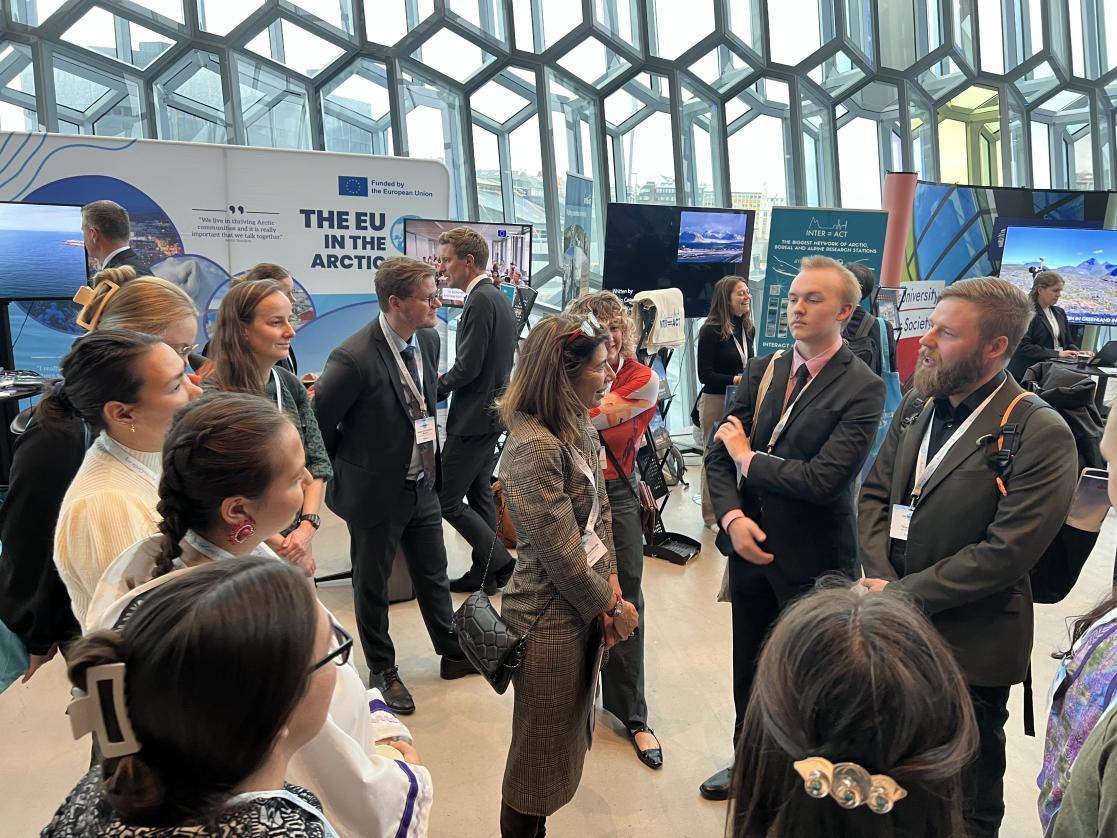The EU at the Arctic Circle Assembly: “Engagement, cooperation, inspiration”

Reflecting the EU’s commitment to a safe, sustainable, prosperous Arctic, the European Union and diverse EU-supported initiatives were actively represented at the 2024 Arctic Circle Assembly.
For Claude Véron-Réville, recently appointed EU Special Envoy on Arctic matters, this was a timely opportunity to meet Arctic stakeholders.
“The absence of the EU from Arctic matters is not an option,” Ms Véron-Réville told a panel session on the EU’s Arctic policy and the world in 2024. “There’s a saying ‘what happens in the Arctic doesn’t stay in the Arctic’, but we should also remember ‘what happens in the EU doesn’t stay in the EU’. Our engagement and support in the Arctic should not be underestimated.”
Trade, fishing, air pollution and tourism are among the key issues linking the EU and Arctic regions. EU support is substantial, including funding of over 370 million euros for Arctic research and innovation under the Horizon programme since 2014. The Global Europe Neighbourhood, Development and International Cooperation instrument provides 225 million euros for education and green growth activities in Greenland alone from 2021 to 2027.
Science diplomacy
Ms Véron-Réville held bilateral meetings with Arctic counterparts and emerging leaders – and took part in high-level discussions on science collaboration in the Arctic. This is a key area of EU action in the broader region, in particular via the All-Atlantic Ocean Research and Innovation Alliance, and the Arctic Science Ministerial meetings.
Mr Raphael Goulet, Deputy Director for International Ocean Governance and the Arctic, intervened on behalf of the European Commission in the Arctic Science Funders Forum and presented its work on Arctic science policy and funding. Through its research framework programmes (Horizon Europe being the current one), the EU promotes and supports high-quality research that is essential for policymaking, contributes to global scientific assessments, and proposes innovative solutions to societal challenges. In terms of funding and number of projects, with 275 million euros and 100 projects in Horizon 2020 and 115 million euros and 39 projects at mid-term of Horizon Europe, the EU is a major player in Arctic Research.
Arctic Urban Regional Cooperation
Local leaders from the Arctic regions and municipalities, including some participating in the EU-funded Arctic Urban Regional Cooperation network (AURC) played a key role, sharing their valuable expertise and experiences at a session on EU and Innovation for Sustainable Development in the Arctic.
Through AURC, local decision-makers exchange best practices to tackle pressing issues such as boosting sustainable tourism, adapting to climate change, or attracting and retaining talent in sparsely populated areas.
Ms Véron-Réville was deeply impressed by the stories of indigenous community representatives and Arctic mayors, praising their “truly inspiring” resilience and resourcefulness in the face of unique regional challenges.
EU’s commitment to youth empowerment
Recognising the crucial role of youth in shaping the Arctic’s future, the EU is actively promoting youth engagement in the Arctic, nonetheless through the latest EU initiative, the Arctic Youth Dialogue. This initiative is part of the EU Arctic policy as well as the EU Arctic Forum.
In Reykjavik, the EU-funded project ‘Youth Together for Arctic Futures' leveraged Arctic Circle Assembly to promote the role of youth in contributing to shape and influence decision-making for a sustainable Arctic. Marking a significant milestone, the project has launched its inaugural mentorship programme, pairing 7 young Arctic leaders with experienced mentors for an 18-month journey, underscoring the EU's dedication to nurturing the next generation of Arctic leaders and change-makers. The Arctic Mayors’ Forum also inspired emerging leaders with Arctic experience to present their policy recommendations on sustainable tourism developed in a Hackathon event prior to the conference to the EU Special Envoy.
“It is crucial to stand united and invest in the future of people living in the Arctic,” said European Commission’s Raphaël Goulet, Deputy Director and Head of Unit for Ocean Governance, Law of the Sea and the Arctic. “Involving young people, women and Indigenous Peoples in Arctic decision-making is paramount.”
More information
To find out more about the multitude of EU actions in and for the Arctic, see:
https://www.arcticwwf.org/our-priorities/arctic-youth/youth-together-for-arctic-futures/

European Union, 2024
